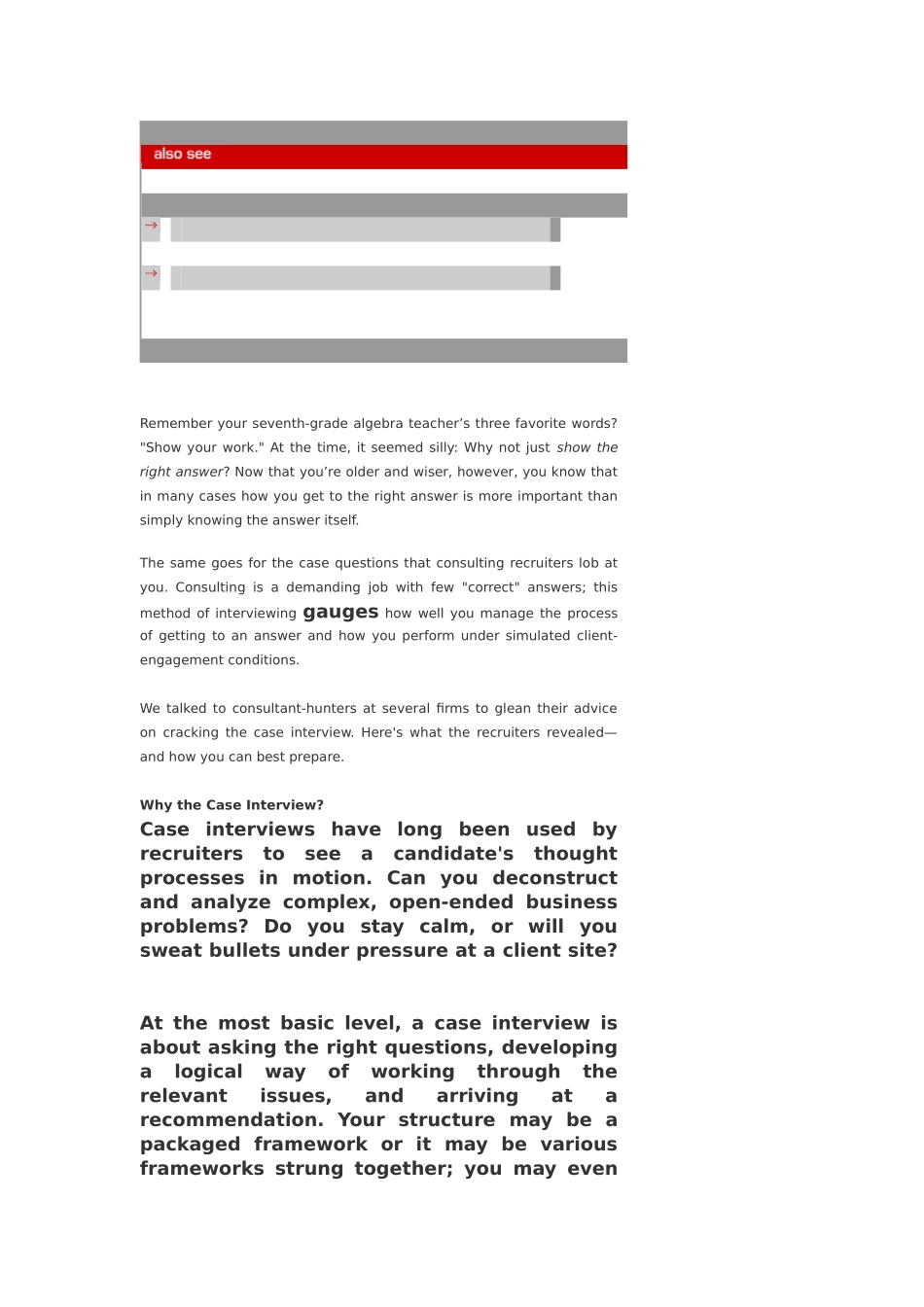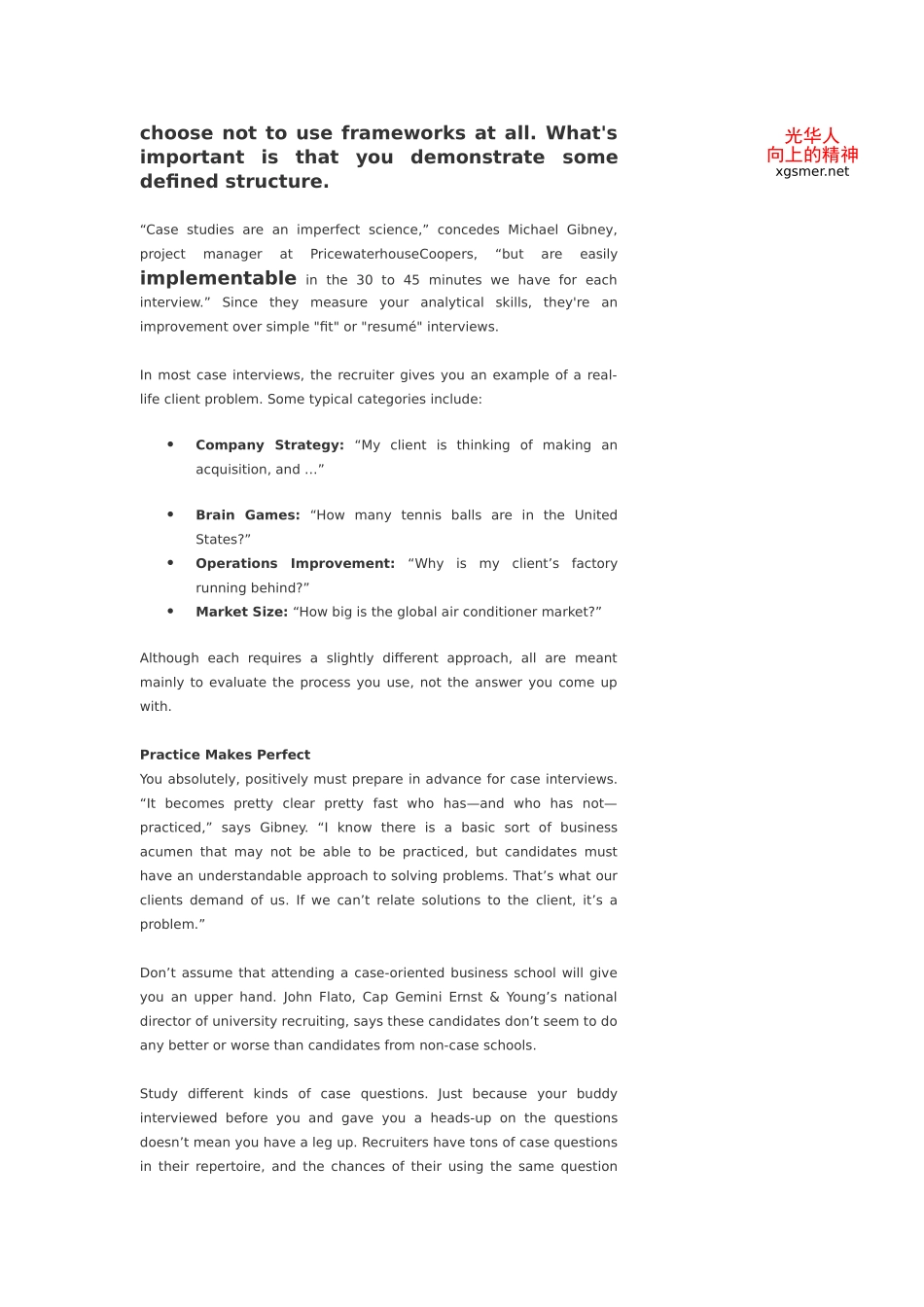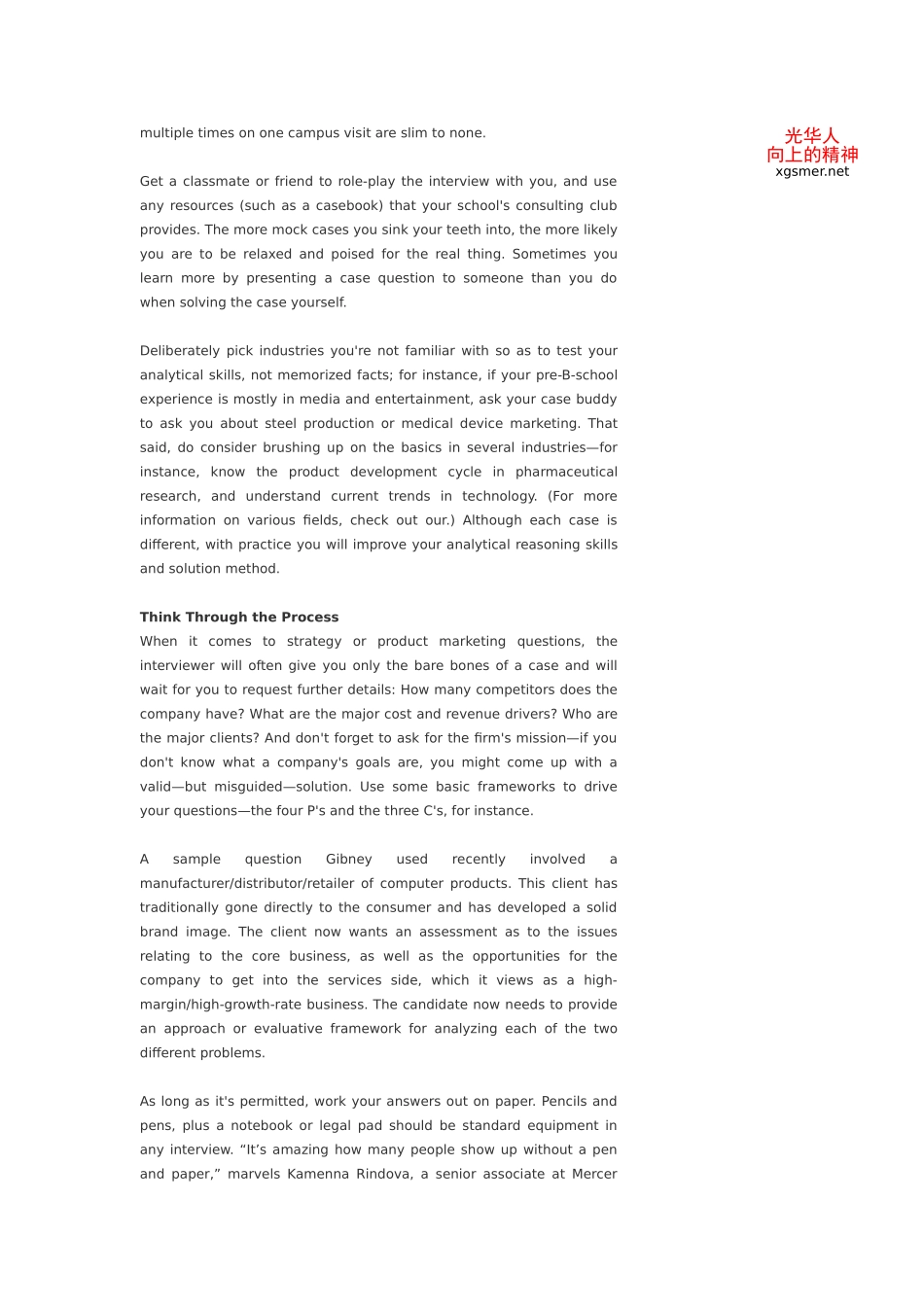Remember your seventh-grade algebra teacher’s three favorite words? "Show your work." At the time, it seemed silly: Why not just show the right answer? Now that you’re older and wiser, however, you know that in many cases how you get to the right answer is more important than simply knowing the answer itself.The same goes for the case questions that consulting recruiters lob at you. Consulting is a demanding job with few "correct" answers; this method of interviewing gauges how well you manage the process of getting to an answer and how you perform under simulated client-engagement conditions. We talked to consultant-hunters at several firms to glean their advice on cracking the case interview. Here's what the recruiters revealed—and how you can best prepare. Why the Case Interview?Case interviews have long been used by recruiters to see a candidate's thought processes in motion. Can you deconstruct and analyze complex, open-ended business problems? Do you stay calm, or will you sweat bullets under pressure at a client site? At the most basic level, a case interview is about asking the right questions, developing a logical way of working through the relevant issues, and arriving at a recommendation. Your structure may be a packaged framework or it may be various frameworks strung together; you may even choose not to use frameworks at all. What's important is that you demonstrate some defined structure. “Case studies are an imperfect science,” concedes Michael Gibney, project manager at PricewaterhouseCoopers, “but are easily implementable in the 30 to 45 minutes we have for each interview.” Since they measure your analytical skills, they're an improvement over simple "fit" or "resumé" int...


